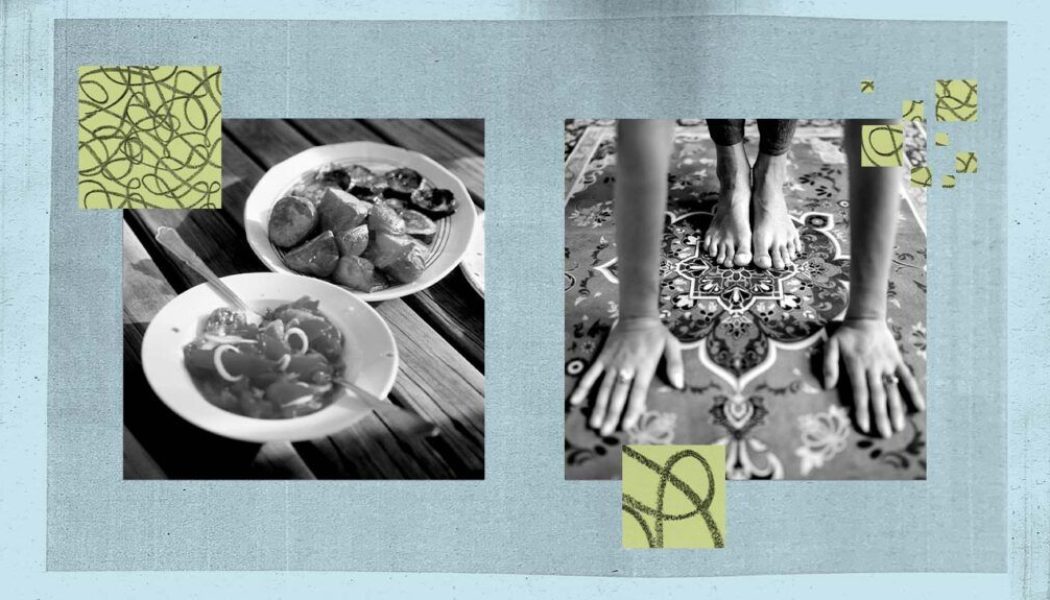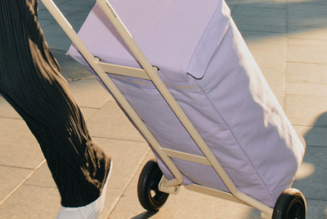
- Healthy lifestyles, specifically not smoking, a high activity level, and sleeping 7 to 9 hours per night, might decrease the risk of developing irritable bowel syndrome (IBS).
- Researchers note that as a person’s number of healthy activities increases, the risk of developing IBS decreases.
- Although their study focused on the risk of developing IBS, they say the same concepts may apply to people who already have the condition.
Healthy lifestyles choices, incuding not smoking, a high level of activity, and sleeping 7 to 9 hours per night, are strongly linked with a decreased risk of developing irritable bowel syndrome (IBS), according to a study published today in the journal Gut.
In their study, researchers looked at the medical and diet information of 64,268 people from the UK Biobank with an average age of 55 who completed at least two 24-hour dietary recalls.
The scientists looked at five healthy behaviors:
The researchers analyzed the engagement of the participants with these five behaviors and found:
- 7,604 (nearly 12%) reported engaging in none of the five healthy behaviors.
- 20,662 participants (32%) reported engaging in one of the behaviors.
- 21,904 (34%) reported two healthy behaviors.
- 14,101 (nearly 22%) reported three to five behaviors.
The scientists reported that the higher the number of behaviors a participant engaged in, the lower their risk of developing IBS.
“This study evaluated five independent risk factors for the development of IBS, which we still don’t have accurate etiology or effective treatment options,” said Dr. James Lee, a gastroenterologist with Providence St. Joseph Hospital in California who was not involved in the study. “[The] study was well designed, and statistical analysis was thorough. This seems to be the first study in combining all five risk factors such as smoking, drinking alcohol, sleep quality, [and] exercise as well as proper diet in preventing the development of IBS symptoms in the [United Kingdom].”
“Indeed, there was compelling evidence that following optimal habits among three to five of these risk factors reduced the incidence of IBS up to 42 percent in a prospective study.” Lee told Medical News Today. “This study was not designed to identify the cause or treatment of IBS but help to prevent the development of IBS recommending lifestyle changes as listed.”
“Some of the salient points in the study is that of the 64,268 participants, IBS developed only in 961 participants (1.5 percent),” Lee noted. “These patients did not have IBS symptoms at the baseline and tended to be older. When we consider up to 10 percent of the general population suffers from IBS, there could be a selection bias, and perhaps these people have different mechanisms of IBS than the general population. This could mean there should be some limitation on whom we can apply these principles.”
Researchers report that engaging in one of the five healthy lifestyle behaviors resulted in a 21% risk reduction, two resulted in a 36% lower risk, and three to five resulted in a 42% lower risk.
The three most critical healthy behaviors were never smoking, a high level of physical activity, and getting a good night’s sleep.
“In my practice, it is pretty clear that people who come to me with IBS usually (but not always) have issues with diet or sleep or anxiety or generally irregular lifestyles, said Dr. Aditya Sreenivasan, a gastroenterologist at Northwell Lenox Hill Hospital in New York who was not involved in the study. “It is helpful to see actual data to support this.”
“Once a person has a diagnosis of IBS, the first thing I try to address are lifestyle habits that may be causing or at least significantly exacerbating their symptoms,” Sreenivasan told Medical News Today. “So though this study was about developing rather than treating IBS, I think it’s reasonable to take these conclusions and apply them to treatment of IBS.”
“I usually focus on diet (often referring to our dietician) and maybe exercise if constipation is part of their issue,” he added. “I often put IBS in the context of their overall health, but I don’t routinely ask specifically about sleep, for instance. I probably will start doing more of that now.”
The researchers point out that most studies focus on lifestyle factors for decreasing symptoms of IBS. In the current study, the scientists chose to look at preventing the onset of the disease.
Several studies – like one published in 2022 – report that stress plays a large role in the development of IBS.
The new study does not list stress management as one of the behaviors that can lower this risk.
“This [new] study provides excellent research and data, and following this many people for over 12 years is impressive, but it doesn’t resonate with me,” said Dr. Ashkan Farhadi, a gastroenterologist at MemorialCare Orange Coast Medical Center in California who was not involved in the current research. “Some factors are up for interpretation, For example, what is a healthy diet? What constitutes vigorous exercise? I think when there is a large pool of participants, researchers can see connections when there is none.”
“I think stress management is essential,” Farhadi told Medical News Today. “Take a meditative walk. Exercise for stress relief. If something aggravates your symptoms, don’t eat it. This study offers great information for researchers to learn more about IBS, but it doesn’t have information physicians can use to better patient care.”
“Chronic stress can trigger or worsen IBS symptoms, likely through the gut-brain axis,” added Anne Danahy, RDN, a registered dietician nutritionist practicing in Arizona who was not involved in the study. “Therefore, any lifestyle strategies aimed at reducing stress are helpful. These include mindfulness meditation, yoga, tai chi, exercise (especially outdoors in the sunshine and fresh air), spending more time with friends or family, or working with a behavioral health therapist. Some research also suggests a link between IBS and an unbalanced gut microbiota (known as dysbiosis).”
“Many lifestyle factors influence the mix of microbes in your gut,” Danahy told Medical News Today. “Besides chronic stress, a Western-style diet high in ultra-processed foods, excess sugar and alcohol, poor sleep quality, inactivity, and use of certain medications (prescription and over the counter) can disrupt the gut microbiome, so again, strategies aimed at moderating these can certainly be helpful.”
“I believe a holistic approach that addresses lifestyle changes to relieve symptoms of irritable bowel syndrome (IBS) can be more effective than medication,” said Tatiana Ridley, a holistic nutritionist, health coach, yoga teacher, and founder of Healthylicious Bliss. “That said, there is no one-size-fits-all approach to IBS, and a combination of lifestyle changes and medication can provide significant relief for some people.
“By identifying and avoiding triggers such as certain foods, like FODMAPs, caffeine, alcohol, and spicy foods, individuals can alleviate symptoms of bloating, diarrhea, constipation, gas, and pain,” Ridley, who was not involved in the study, told Medical News Today.
However, Ridley said she understands that IBS can be hard to manage because triggers and symptoms can be different from person to person.
“IBS is a complicated condition because there doesn’t appear to be a single cause and there is no one-size-fits-all way of managing it,” Danahy added. “However, lifestyle does seem to play an important role.”
Danahy suggests that if you have IBS, work with a dietitian who specializes in gut health because diet is a cornerstone of treatment.
She notes that diet directly affects the gut microbiota as well as sleep, stress, and other factors.
This was an observational study, so the researchers could not determine cause and effect.
The scientists also relied on self-reported information, which might not be accurate. The participants were 55 and older, so the results might not apply to younger people.
Finally, it was impossible to account for lifestyle changes during the 12-year monitoring period.
“As mentioned in the paper, depression and physical activities were inversely related,” said Lee. “These factors could have an impact on analysis. Osteoarthritis also can limit physical activities and its impact on the study in these elderly population was also listed in the paper as one of the few limitations of the study.”









